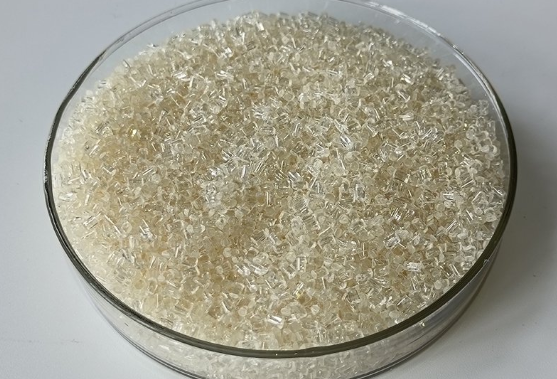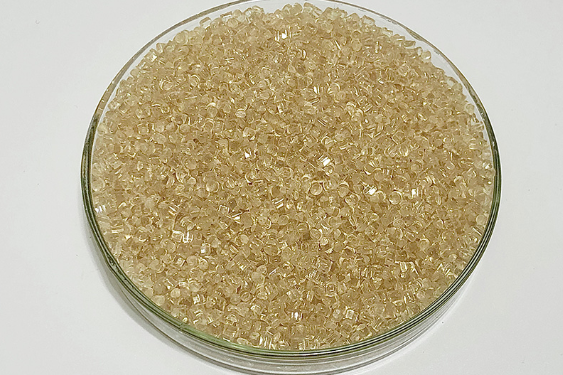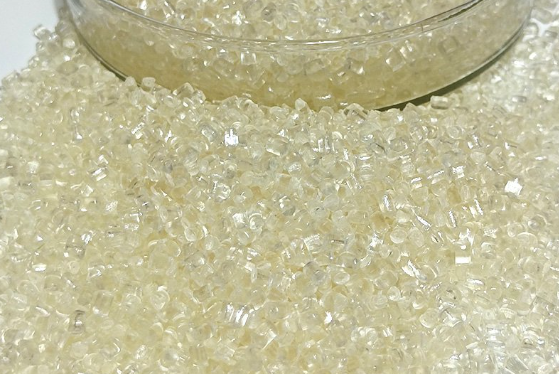Three types of sulfone polymers are commercially available. They are commonly known as polysulfone (PSU), polyethersulfone (PES), and polyphenylsulfone (PPSU).
Bisphenol A polysulfone is synthesized from bisphenol A and 4,4-dichlorodiphenylsulfone through the steps of salt formation and polycondensation.
Isopropylidene can reduce the intermolecular force, giving the polymer certain flexibility and good melt processability. The non-polar methyl side chain makes the polymer less hygroscopic. The electrical properties are improved, but the heat resistance of the polymer is unfavorable, so that heat distortion temperature and maximum continuous use temperature of PSU plastic are all lower than PPSU and PES.

There are many synthesis methods of polyether sulfone, including melting desalination method, dehydrochlorination method and solution desalination method, etc.
Compared with PSU, the macromolecular main chain of PES does not contain isopropylidene which is unfavorable to heat resistance and thermo-oxidative stability. Instead, it retains the diphenylsulfone group that makes polysulfone plastics have high heat resistance, thermo-oxidative stability, mechanical properties and electrical insulation, as well as the ether group that imparts good processability to polysulfone.
Therefore, PES has both the advantages of PSU and PPSU. Its heat resistance is better than PSU, and its processability is better than PPSU. It can be processed by the processing methods of general thermoplastics, and it is called the first engineering plastic that combines high heat distortion temperature, high impact strength and the best molding process.

Polyphenylene sulfone is synthesized from 4,4-biphenol and 4,4-dichlorodiphenylsulfone through the steps of salification and polycondensation.
Compared with PSU, the molecular chain of PPSU does not contain isopropylidene but contains a large number of biphenyl groups, so its heat resistance is more prominent, but the ether bond in the molecular chain can still provide certain flexibility, making it suitable for use at a low temperature of -240°C. However, the rigidity of PPSU molecular chain greatly exceeds that of PSU. It has higher melt viscosity, poorer melt flow, and is more difficult to process.

All members of the polysulfone family exhibit excellent stability at high temperatures. However, they have certain other differentiating characteristics.
PSU is predominantly used in applications requiring high creep resistance and suitability for high continuous service temperatures alongside the usual requirements of high mechanical stability and stiffness. A light amber amorphous structure, which enables transmission of light and has high dimensional stability and good hydrolysis resistance.
Like PSU, PESU is an amorphous transparent plastic with a light yellowish color. Its properties are similar to those of PSU, although PESU exhibits a higher impact strength and better chemical resistance. Its stiffness and stability are high and its notch sensitivity is low.
PPSU has better impact strength than PSU and PESU. It also has higher chemical resistance, particularly to cleaning and disinfecting agents, and a very low rate of water absorption, which makes it suitable for applications involving superheated steam sterilization. Other properties of note are its good dimensional stability and excellent resistance to high-energy radiation.
Dong Guang Shengwen New Materials Co.,Ltd. is a comprehensive company specialized in production, sales and service of special engineering plastic. For more information about sulfone polymers, please click here to contact us! Our professional engineers and development team will help you to solve problems for application of different materials. We look forward to cooperating with you!
By continuing to use the site you agree to our privacy policy Terms and Conditions.